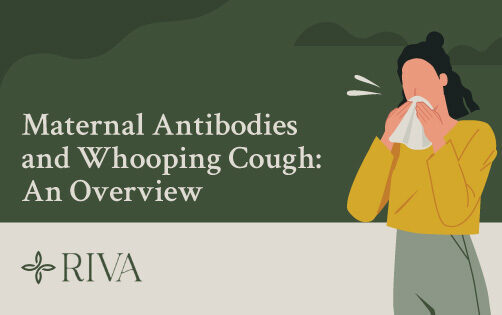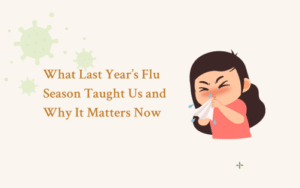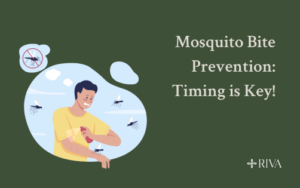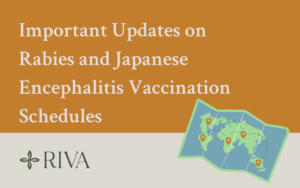If you’re uncertain about some aspects of maternal antibodies and how vaccines during pregnancy can protect an unborn child, you’re certainly not alone. In fact, when it comes to maternal antibodies and the potential dangers of whooping cough for newborn babies, you’ll find that both healthcare workers and expectant mothers share the same concerns.
What are those concerns? A need for clarity, a desire for some simple answers, and some straightforward discussion regarding the basics of receiving a vaccination while carrying a child.
Unfortunately, many of us don’t feel comfortable asking these questions. This can lead to misconceptions, misinformation, and severe ramifications to the health of both expectant mother and baby alike.
It doesn’t matter if you’re a healthcare worker in need of a little more information or simply a worried parent who just wants what’s best for your child. What matters is having access to the best information possible to help you make the right decision for your family.
Below, we have provided an overview of maternal antibodies and the effects of whooping cough on newborn babies.
What Are Maternal Antibodies?
Maternal antibodies are blood proteins that are passed on from mother to baby through the placenta during pregnancy. It serves as a response in the body to foreign antigens in order to make an immune response.
In other words, maternal antibodies are a way of providing protection for an unborn baby against diseases and infections before the child has a chance to develop their own immunities.
How are Antibodies Passed on to My Child?
As babies progress through life they’re exposed to the many different germs that cause sickness, which in turn contributes to developing the immunity of the baby. During pregnancy, maternal antibodies are passed from the mother to the baby during the last 3 months of pregnancy (the third trimester).
This means that during this time, the type of immunities a baby receives is entirely dependent on the level of immunity in the mother.
After birth, these immunities will decrease over the next few weeks and months, while the baby develops its own antibodies and immunity. While maternal antibodies can still be passed on to the baby through breast milk and other sources, babies are at a greater risk of infection from possibly fatal infections like whooping cough.
What is Whooping Cough?
Whooping cough (also known as pertussis) is a bacterial infection of the lungs and airways. It can lead to a persistent and aggressive cough that’s difficult to control and often makes it very hard to breathe.
An infected person can spread whooping cough through droplets in the air caused by coughing or sneezing. The effects of pertussis can last up to three months in adults and can be potentially fatal to children and newborn babies.
Whooping Cough Symptoms
Whooping cough symptoms can be difficult to spot at first, due to their similarities to the common cold. These initial similarities can be generally found under these cold symptoms:
- A runny and blocked nose
- A sore throat
- Mild temperature
- Watery eyes
Further whooping cough symptoms will begin to become clearer over the subsequent weeks, leading to:
- Intense periods of persistent coughing that can last for minutes at a time.
- Intense coughing that’s more prominent at night time.
- Some mild bleeding under the skin or eyes from violent coughing.
- Thick mucus that’s brought up from excessive coughing.
- Vomiting from aggressive coughing in some cases.
Whooping cough symptoms for babies and children will be similar to the ones stated above. But they may also have the following telltale signs:
- A child may make a ‘whoop’ sound as they gasp for breath between excessive coughing fits.
- Children may even begin to turn blue (known as cyanosis) while having trouble catching their breath. However, this looks far more distressing than it actually is, and most children should be able to find their breath again quickly.
- In infants and newborn babies, a cough may not be noticeable, but there may be moments where the child stops breathing completely.
Protecting Your Baby From Whooping Cough
Whooping cough symptoms have risen significantly over the years. This exposes babies who are too young to receive a whooping cough vaccine to potentially fatal risks.
Whooping cough vaccines during pregnancy helps the body to make, or boost the necessary antibodies to protect against whooping cough. It provides this protection until a child is able to receive the vaccine when they reach 2 months of age.
Vaccinations During Pregnancy
Looking into vaccinations during pregnancy can worry many women. It’s perfectly understandable. With so many differing opinions and articles claiming to have the best insights, it can be difficult to make an informed decision when all a mother wants is to do what’s best for her unborn child.
There is a misconception that vaccinations during pregnancy are harmful. But the truth is that it depends entirely on the kind of vaccines that are being talked about. It is actually recommended that women receive their flu and whooping cough vaccines during pregnancy for the benefit of themselves and their children.
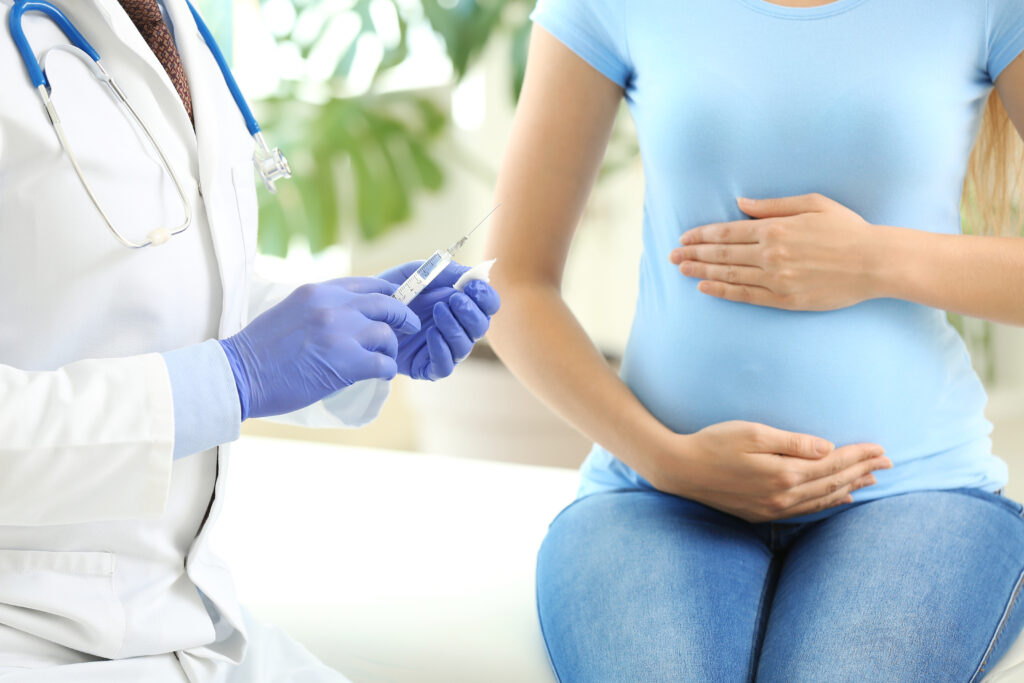
Do I Need a Whooping Cough Vaccination for Every Pregnancy?
Yes. This is a commonly searched question as some mothers believe that if they’ve received a whooping cough vaccination during a previous pregnancy that they’re completely immune. This is categorically untrue.
It’s also important to remember that no matter what vaccinations a pregnant mother has had, the child still needs a whooping cough vaccination at the age of 2 months old. They’ll receive this jab as part of their 8-week old 6-in-1 vaccine.
We understand how distressing and overwhelming this can all feel at times, but keeping a child healthy and safe through understanding the benefits of maternal antibodies is essential. A previous whooping cough vaccination when pregnant or a vaccination a patient may have had as a child offers no protection for their current child during pregnancy.
Whooping Cough Vaccine Side Effects in Pregnancy
Whooping cough vaccine side effects in pregnancy are minimal but can vary depending on the individual experiencing them. Below are some of the most commonly reported side effects of having a whooping cough vaccine when pregnant.
- Mild arm swelling
- Redness
- A dull body ache
- Fatigue
- Tenderness around the injected area
- A mild fever
- Headaches and nausea
- Vomiting
- Diarrhoea
- A stomachache
How Long Does the Whooping Cough Vaccine Last?
In general, a whooping cough vaccination will last 10 years or longer. However, it’s very important to understand the benefits of protecting an unborn child through maternal antibodies so that they can be born as healthy as possible.
For midwives and other front line healthcare professionals, these are some of the most vital pieces of information when discussing vaccine options with an unconvinced expectant mother.
For many mothers, their doctor or midwife will be the first and last point of reference before making their decision. That’s why it’s essential that all healthcare teams sound informed, confident, and up to date with the latest information.
Whooping Cough Vaccines with RIVA
The topic of vaccinations, particularly vaccinations during pregnancy, has become something of a minefield for healthcare practitioners and expecting parents alike. That’s why our RIVA industry experts dedicate themselves to actively researching and participating in the latest discoveries and discourses in medicine.
In doing so, we are able to stay on the very cusp of healthcare development. We don’t exist to administer unsolicited advice. Instead, we empower other healthcare professionals to have the most up to date information possible. They then use that information to present worried expecting mothers with all of the details, allowing them to make the best decisions possible for themselves and their unborn children.
Immunisation Training for Midwives and Other Healthcare Professionals
RIVA is plugged into the vaccination discussion on all levels, from academia to patient groups and industry experts. We pride ourselves on an open and honest approach to immunisation training. This allows us to be a reliable source of information on vaccinations while inspiring confidence in healthcare workers.
RIVA combines inspirational teaching with compliance and regulatory training in order to fully prepare health care professionals for the next step in their careers. In fact, we aim to be the leading primary healthcare training and education company in the UK for immunisations and travel health.
Why Choose RIVA for Your Vaccination Training?
Our compassionate but innovative approach helps us to work alongside businesses of all sizes, no matter where they are in the world. Whether it’s in-person, in-office, or even delivering online maternal healthcare vaccination training, we are here to inspire confidence and knowledge in your team.
We’ve empowered businesses across the world with our nurse-led vaccination training courses. Most notably, we recently gave healthcare support and guidance to the Ministry of Defence.
Our impartial information facilitates open discussions for our course participants, which offers them more confidence in assuring nervous mothers and vaccine sceptics. By adding some much-needed heart to healthcare education, RIVA uses its platform to inspire and support frontline healthcare workers, for the greater health of the world.

